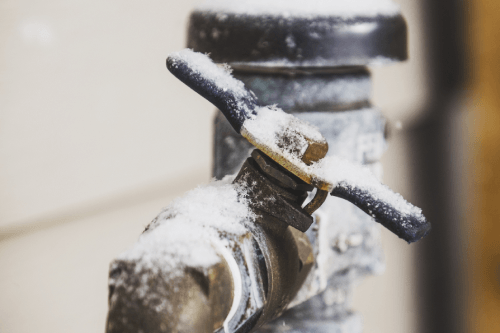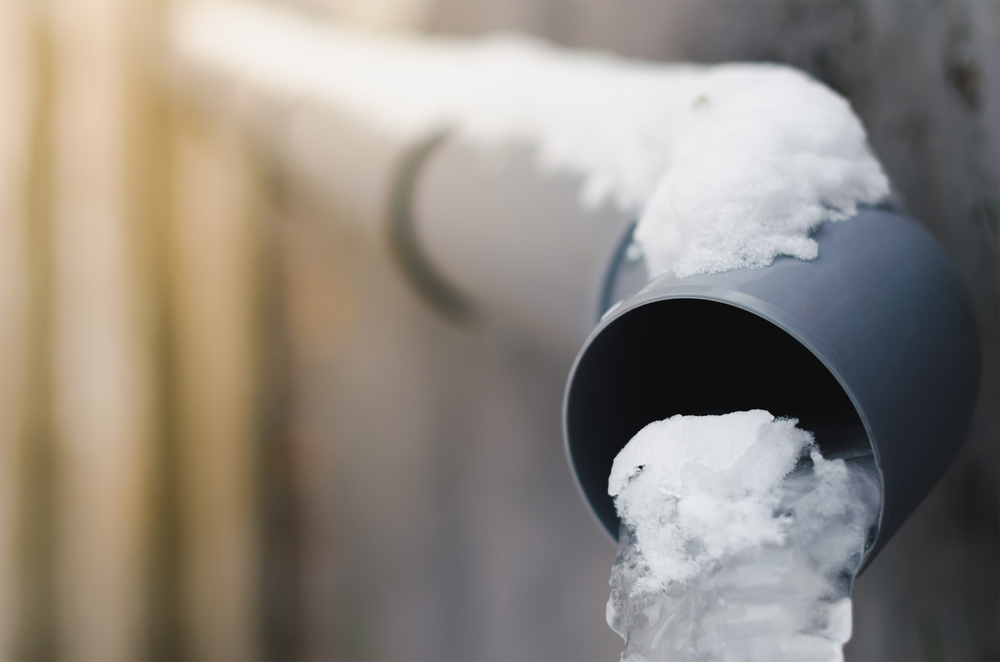Preventing Frozen Pipes in Cold Weather: Pro Tips
Preventing Frozen Pipes in Cold Weather: Pro Tips
Blog Article
Just how do you really feel in regards to How to Prevent Your Pipes From Freezing?

Winter can damage your pipes, particularly by freezing pipes. Right here's exactly how to prevent it from taking place and what to do if it does.
Intro
As temperatures drop, the danger of icy pipelines boosts, potentially bring about expensive repair work and water damage. Recognizing exactly how to prevent frozen pipes is critical for homeowners in chilly environments.
Avoidance Tips
Shielding prone pipes
Wrap pipelines in insulation sleeves or utilize warm tape to protect them from freezing temperature levels. Concentrate on pipes in unheated or external locations of the home.
Heating strategies
Keep interior areas sufficiently heated, specifically areas with plumbing. Open up cabinet doors to permit cozy air to circulate around pipelines under sinks.
Exactly how to determine frozen pipes
Seek lowered water flow from faucets, uncommon smells or noises from pipes, and noticeable frost on revealed pipelines.
Long-Term Solutions
Structural adjustments
Take into consideration rerouting pipelines far from exterior wall surfaces or unheated locations. Add extra insulation to attics, cellars, and crawl spaces.
Upgrading insulation
Buy high-quality insulation for pipelines, attics, and walls. Proper insulation aids keep regular temperatures and decreases the risk of frozen pipes.
Safeguarding Outside Pipes
Yard pipes and outside faucets
Separate and drain pipes yard hose pipes prior to winter months. Set up frost-proof spigots or cover exterior faucets with shielded caps.
Comprehending Frozen Pipelines
What causes pipelines to freeze?
Pipelines freeze when revealed to temperatures listed below 32 ° F (0 ° C) for extended durations. As water inside the pipelines freezes, it broadens, taxing the pipe wall surfaces and possibly causing them to rupture.
Threats and damages
Frozen pipelines can lead to water system disturbances, building damage, and expensive repair work. Ruptured pipelines can flood homes and create considerable structural damages.
Indicators of Frozen Pipeline
Identifying icy pipelines early can stop them from bursting.
What to Do If Your Pipes Freeze
Immediate actions to take
If you think frozen pipelines, maintain faucets available to relieve stress as the ice thaws. Use a hairdryer or towels taken in warm water to thaw pipelines slowly.
Final thought
Avoiding frozen pipes calls for positive actions and fast feedbacks. By recognizing the reasons, indications, and preventive measures, house owners can safeguard their pipes throughout cold weather.
5 Ways to Prevent Frozen Pipes
Drain Outdoor Faucets and Disconnect Hoses
First, close the shut-off valve that controls the flow of water in the pipe to your outdoor faucet. Then, head outside to disconnect and drain your hose and open the outdoor faucet to allow the water to completely drain out of the line. Turn off the faucet when done. Finally, head back to the shut-off valve and drain the remaining water inside the pipe into a bucket or container. Additionally, if you have a home irrigation system, you should consider hiring an expert to clear the system of water each year.
Insulate Pipes
One of the best and most cost-effective methods for preventing frozen water pipes is to wrap your pipes with insulation. This is especially important for areas in your home that aren’t exposed to heat, such as an attic. We suggest using foam sleeves, which can typically be found at your local hardware store.
Keep Heat Running at 65
Your pipes are located inside your walls, and the temperature there is much colder than the rest of the house. To prevent your pipes from freezing, The Insurance Information Institute suggests that you keep your home heated to at least 65 degrees, even when traveling. You may want to invest in smart devices that can keep an eye on the temperature in your home while you’re away.
Leave Water Dripping
Moving water — even a small trickle — can prevent ice from forming inside your pipes. When freezing temps are imminent, start a drip of water from all faucets that serve exposed pipes. Leaving a few faucets running will also help relieve pressure inside the pipes and help prevent a rupture if the water inside freezes.
Open Cupboard Doors
Warm your kitchen and bathroom pipes by opening cupboards and vanities. You should also leave your interior doors ajar to help warm air circulate evenly throughout your home.

I am very focused on Prevent Frozen Pipes and I am assuming you enjoyed the entire page. Sharing is good. Who knows, you will be helping someone out. Many thanks for going through it.
Schedule Today Report this page